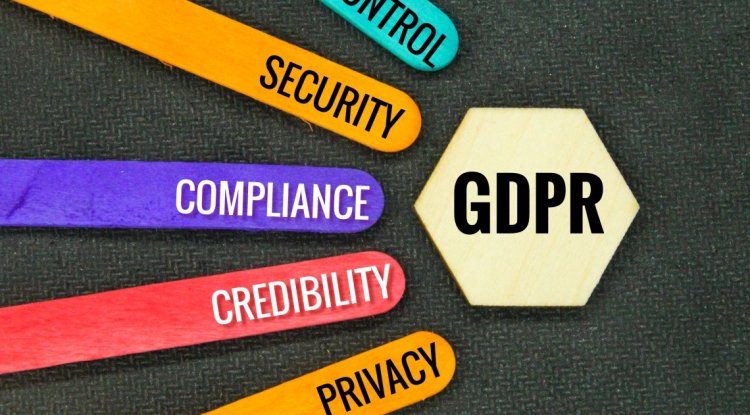Balancing Profitability and Ethical Advertising in Business
Discover the delicate balance between profitability and ethical advertising in the business world. Learn how businesses can maintain their financial success while upholding ethical principles and building a strong brand reputation.

As the digital landscape continues to evolve, businesses find themselves navigating the challenges of striking a delicate balance between profitability and ethical advertising. While the primary objective of any business is to maximize profits and achieve financial success, it is equally vital to uphold ethical principles in marketing and avoid practices that may compromise a brand's reputation.
The Importance of Ethical Advertising
Ethical advertising entails promoting products and services in a truthful, transparent, and socially responsible manner. When businesses prioritize ethics in their marketing strategies, they foster trust with their target audience and build long-term relationships. Consumers are more likely to support companies that exhibit a commitment to ethical practices, leading to increased brand loyalty and positive word-of-mouth referrals.
Transparency and Honesty
Honesty and transparency are the cornerstones of ethical advertising. Businesses should avoid making false claims or exaggerating the benefits of their offerings. Clear and accurate communication fosters trust between a brand and its customers, leading to a more positive perception of the business.
Respect for Privacy and Data Protection
In the digital age, data privacy has become a significant concern for consumers. Ethical advertising involves respecting users' privacy and safeguarding their personal information. Companies must comply with relevant data protection regulations and be transparent about how they collect, store, and use customer data.
Social Responsibility
Ethical advertising goes beyond individual transactions and embraces a broader sense of social responsibility. Companies that engage in socially responsible initiatives, such as supporting environmental causes or promoting diversity and inclusion, demonstrate a commitment to making a positive impact on society.
The Pitfalls of Unethical Advertising
While unethical advertising tactics may yield short-term gains, they often lead to long-term consequences that can harm a company's reputation and profitability.
Deceptive Advertising
Engaging in deceptive practices, such as false advertising or hidden fees, can erode consumer trust and lead to negative publicity. In the era of social media, disgruntled customers can easily share their experiences, potentially damaging a brand's image and customer base.
Exploitative Marketing
Unethical advertising may involve exploiting vulnerable populations or promoting harmful products. Such practices can attract regulatory scrutiny, legal challenges, and public backlash, resulting in severe financial and reputational damage to the business.
Privacy Breaches and Data Misuse
Failure to protect customer data can lead to data breaches and unauthorized use of personal information. Apart from potential legal consequences, such incidents can significantly damage consumer trust and confidence in the company's ability to handle sensitive information.
Striking the Balance
To achieve both profitability and ethical advertising, businesses can implement the following strategies:
1. Prioritize Transparency
Being transparent about product features, pricing, and terms and conditions builds trust and credibility with consumers. Businesses should provide clear information to help customers make informed decisions.
2. Embrace Responsible Marketing
Companies can incorporate social responsibility into their marketing campaigns by supporting charitable initiatives, promoting eco-friendly practices, and advocating for positive societal change.
3. Protect Customer Privacy
Adhering to data protection laws and industry best practices demonstrates a commitment to safeguarding customer information and reinforces the company's ethical standing.
4. Promote Authenticity
Authenticity resonates with consumers. Businesses should focus on highlighting genuine customer experiences and real-life product benefits rather than resorting to exaggerated claims.
Case Study: Ethical Advertising Pays Off
In the case of XYZ Corporation, a leading tech company, the marketing team decided to take an ethical approach to promote their latest product. Instead of making unrealistic promises, they highlighted the product's unique features and how it could genuinely benefit customers. They also emphasized the company's commitment to eco-friendly manufacturing practices and social initiatives.
The result was remarkable - not only did XYZ Corporation receive positive feedback from customers, but their sales also surged, and they experienced a surge in customer loyalty. Word spread about their ethical marketing practices, attracting new customers who appreciated the brand's authenticity and commitment to ethical advertising.
Conclusion
Balancing profitability and ethical advertising is not an easy task, but it is crucial for long-term business success. Embracing ethical principles in marketing not only safeguards a brand's reputation but also fosters consumer trust and loyalty. By prioritizing transparency, social responsibility, and privacy protection, businesses can create a sustainable competitive advantage while building a positive and lasting brand image.
About Myself
My name is Raghav Chugh, and I am a highly skilled professional with extensive expertise in digital marketing and technology. With certifications in Marketo and proficiency in various technical areas, I have accumulated over 8 years of experience in campaigns planning and execution, building automation tools, and developing websites with PHP and MYSQL backend.
Throughout my career, I have prioritized ethical practices in marketing, understanding the value of transparency, and customer trust. My experience in striking the balance between profitability and ethical advertising has allowed me to deliver exceptional results for clients across various industries. Connect with me on LinkedIn to learn more about my experiences and insights.
What's Your Reaction?




















